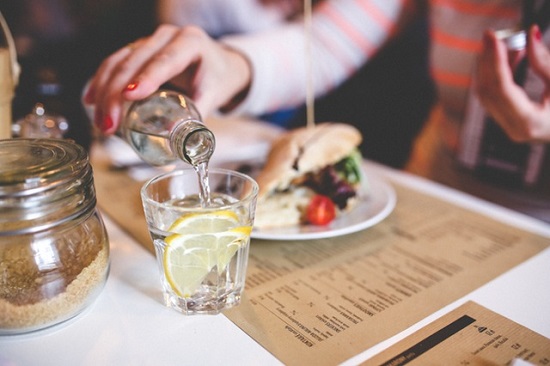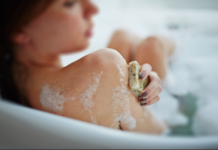Your body is comprised of about 65 percent water, which is needed for many physiological processes, and biochemical reactions, including:
- Metabolism
- Waste removal and detoxification
- Blood circulation
- Regulation of body temperature
‘Drink eight 8 ounce glasses of water a day’ is something we have been hearing since childhood. For most, I feel this is the bare minimum to go by. I frequently recommend more water for my patients, as recommended by the Institute of Medicine. Their recommendation is an average of 91 ounces a day for women and 125 ounces a day for men. Many don’t follow this, however, drinking water only when they feel thirsty. Here are some guidelines I have recommended to my patients for over 30 years, and I hope you find them helpful as well:
1.) Drink 1-2 glasses of water as soon as you wake up to get your system going.
This helps clear toxins from your system and improves organ circulation. Honey, lemon and cinnamon may be added to boost health benefits.
2.) Drink at least 1 glass of water about 30 minutes before each meal to feel fuller.
This helps decrease hunger by helping you feel fuller. It also prepares your stomach for the meal that is to come.
3.) Drink at least 1 glass of water when you feel hungry to prevent needless snacking.
Our body’s signals for hunger are similar to those for thirst, so it is wise to drink water when you feel hungry. Wait for about 10-15 minutes. If you are still hungry, be sure to have a snack. However, you may find that your hunger has vanished!
4.) Drink a glass of water when you feel tired, to power up your brain.
Since 75% or our brain consists of water, drinking water helps it function better. Drink a glass of water when you are feeling tired at work, or are facing a big presentation.
5.) Drink plenty of water before, during, and after exercise to power up your muscles.
It is very important to be well hydrated when you exercise, as your body needs to transport necessary nutrients to your muscles. Water also helps prevent fatigue. You will get tired much sooner if you become dehydrated than when you are properly hydrated.
6.) Drink extra water when ill, pregnant or breastfeeding.
Drinking water when you are sick will help your body repair itself faster. If diarrhea is part of your illness, drinking extra water is very important to help avoid dehydration.

Pregnant and breastfeeding women require extra water. I usually recommend at least 2 extra glasses a day for my patients who are pregnant, and 5 extra glasses a day for those who are breastfeeding. Of course, you will want to seek your doctor’s advice for your specific needs. Altered kidney and heart function, for example, may alter your daily need.
How To Tell If You Need To Drink More Water
Once your body has lost one to two percent of its total water content, you will feel thirsty. Using thirst as a marker is one way to ensure your needs are met on a daily basis.
However, by the time your thirst mechanism actually kicks in, you are already in the early stages of dehydration, so you don’t want to ignore the initial sensations of thirst.
Remember, also, that the thirst mechanism is underdeveloped in children, making them more vulnerable to dehydration. The elderly often have a decreased thirst sensation, causing frequent dehydration.
In addition to thirst, here are come other signals which often indicate the need for more water:
- Foggy thinking
- Irritability
- Poor concentration
- Headache
- Constipation
- Sugar cravings
- Mood swings
- Chills
- Back ache
- Joint aches
- Infrequent urination
- Dark yellow, concentrated urine
- Muscle cramps
- Fatigue
- Dizziness
- Bad breath
Also, please keep in mind that riboflavin (vitamin B2, also found in most multivitamins) will turn your urine a bright yellow. This generally lasts about 3-4 hours after taking the vitamin, and can make it more difficult to judge your water needs by the color of your urine.
Remember to listen to your body. Thirst is an obvious signal that you need fluids. The above-mentioned symptoms can be very helpful. Probably the best way to gauge your water needs is to observe your urine color, and how many times a day you urinate. The color of your urine should be a light, pale yellow. On average, seven to eight visits to the bathroom a day is considered good.









I cannot tell you how much I appreciate your website and products. I have always gone by my “gut” to determine whether I’m on the right path – and any time I have a health concern I look to your site for information. I always come away feeling that your advice is “the right path” for me. Just wanted to say thank you and know that your work is greatly appreciated. All the best to you, Debbie and staff!
Hello Lynda,
Thank you for your kind words! You are deeply appreciated!
Blessings,
Dr. Maxwell and Staff